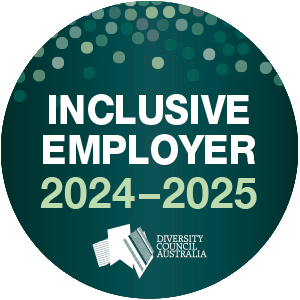June – September 2025
Talk to our team about bespoke training for your organisation in 2025.
The following courses are scheduled for 2025 June – September period:
The Five Essential Discussion Tools (FREE, 3 hour online training session delivered via Zoom)
The original ‘The Five Essential Discussion Tools’ training package has been revised and refreshed. Perfect for practitioners who are new to working with men using family violence or those who have not explored de-escalation techniques in their work, this training explores the Five Essential Discussion Tools whilst applying an intersectional lens. It identifies how practitioners can engage in conversations to help men make sense of their behaviour; examines the client facing tools; develops practice skills in using the tools as additional interventions with men using family violence; and discusses how safety for families can be established by connecting men with their capacity to change.
The revised package includes a video activity to support practitioners to identify invitations to collude, reframing of passive language and safety planning.
Dates of delivery:
- Tuesday 8th July – 10am – 1pm
- Wednesday 23rd July – 10am – 1pm
- Tuesday 12th August – 10am – 1pm
- Wednesday 20th August – 10am – 1pm
- Wednesday 3rd September – 10am – 1pm
- Tuesday 23rd September – 10am – 1pm
For more information and to register, click here.
Enhanced – The Five Essential Discussion Tools (FREE, 3 hour online training session delivered via Zoom)
For practitioners who have engaged with the Five Essential Discussion Tools before, this enhanced package will refresh knowledge and introduce new topics and practice considerations.
Training content expands upon underlying theories that support the tools – interoception (Body Signs Tool), Name it to Tame it [Dr. Dan Siegel] (Traffic Light Tool) – the theory of behaviour change and brain plasticity; identifying and responding to invitations to collude; and practitioner accountability and best practice principles in the work – managing reactivity and using the tools on yourselves as practitioners.
The enhanced package also includes a case study following the journey of a ‘practitioner’ explaining the benefits of the tools to a ‘client’.
Dates of delivery:
- Monday 7th July – 10am – 1pm
- Monday 4th August – 10am – 1pm
- Tuesday 19th August – 10am – 1pm
- Monday 15th September – 10am – 1pm
- Wednesday 24th September – 10am – 1pm
For more information and to register, click here.
Engaging Dads Using Family Violence ($299, 2 x 3 hour online training sessions delivered via Zoom)
This training explores the damaging effects of children witnessing/experiencing violence and abuse and how to shift the focus of interventions to the father’s responsibility and accountability for safe parenting.
This training is underpinned by the current evidence base that has established an understanding of the gender drivers of men’s violence against women. Practitioners attending this training examine the understanding that the choice to use abuse includes the ways in which abuse and violence minimise and impact on the parenting of the victim-survivor.
Dates of delivery 2025:
- Monday 11th & Tuesday 12th August – 10am – 1pm
- Thursday 11th & Friday 12th September – 10am – 1pm
For more information and to register, click here.
MARAM Adults using family violence training
No to Violence is working in partnership with Family Safety Victoria (FSV) and Safe and Equal to deliver MARAM training modules for practitioners who need to have an applied understanding of MARAM and information sharing in their roles when working with adults using family violence.
MARAM sets out the responsibilities of different workforces in identifying, assessing and managing family violence risk across the family violence and broader service system. Depending on your role within an organisation, you will learn about different responsibilities and practice guides to keep perpetrators in view and accountable, and to promote the safety of victim survivors of family violence.
The MARAM responsibilities decision guide provides an overview of how you may determine which level of responsibilities you hold.
There are three levels of training:
Identification
For more information and to register, click here.
Intermediate
For more information and to register, click here.
Comprehensive
For more information and to register, click here.








